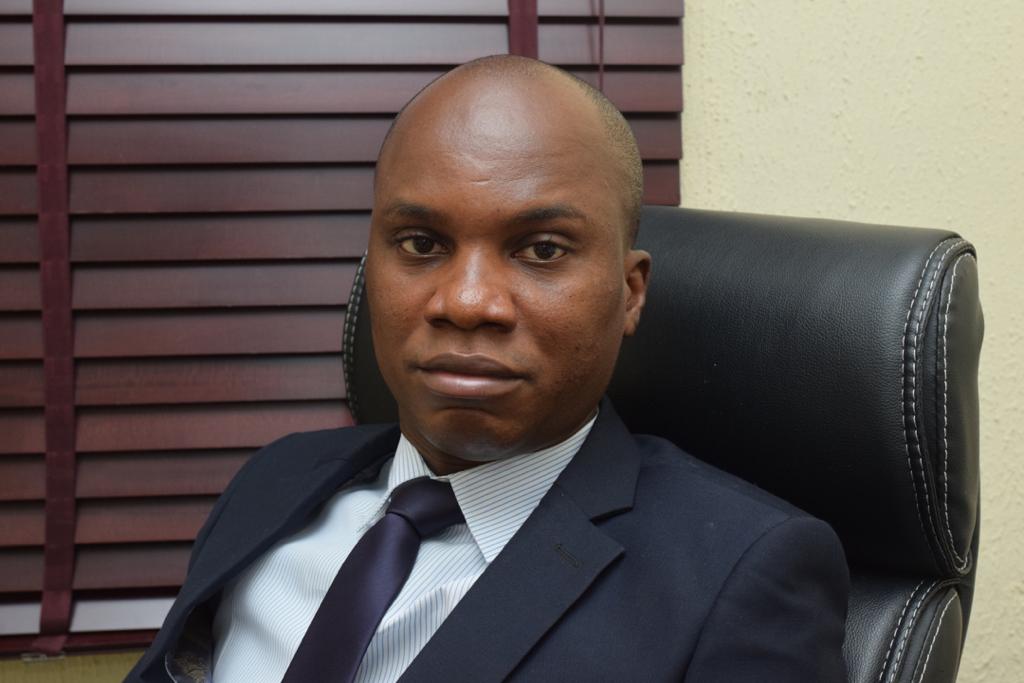Mr. Efetobo Awhana is the Chief Executive Officer, Nigeria Travel Week/Tour Consultant. He is also the Principal Consultant for Avantgarde Tours Limited, a travel management company that specialises in tours to Africa and the Indian Ocean. In this interview with OBINNA NNOROM, the CEO advised the government to consider investing massively in the tourism sector to save the economy among others. Excerpts:
Coronavirus is ravaging the whole world and Nigeria is not spared, how has the pandemic affected the tourism industry?
Globally about 75 million jobs are at stake and the losses are estimated at $1 Trillion for the tourism industry and up to $5tr inclusive of allied sectors according to the World Tourism Forum Institute. IATA estimates that Covid-19 could cost airlines about $113b globally.
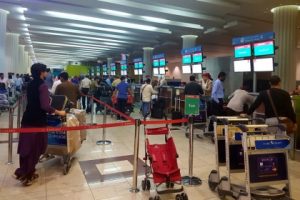
Tourists at Dubai International Airport
The massive losses are due to the nature of tourism in driving economies and with the pandemic hindering the movement of people from one place to the other for diverse reasons, naturally the huge inflow that comes from these movements and associated spending are affected.
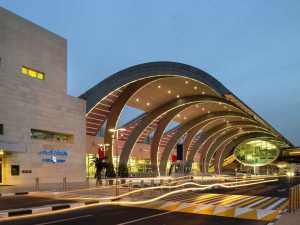
Dubai airport
Nigeria Travel Week estimates from data generalised from the latest World Trade Organisations (WTO) figures for Nigeria, that on a daily basis, the loss from tourism spending of inbound travelers is N4 billion daily loss from tourism, spending of domestic travelers N5.6 billion About 25percent of the over 2 million people employed in the tourism industry in Nigeria are expected to lose their jobs, that’s about 500,000 job losses.
This figure includes tour operators, travel agents, tour guides, hoteliers, restauranteurs, MICE and event planners, recreational centres and activity providers, transporters etc.
We would like you to take a look at how the lockdown affected Africa and measures needed to put in place to bring the sector back to life in the post Covid-19.
Africa is probably the worst affected of all the continent considering the fact that a higher percentage of the African population are low income and daily earners who are unable to go out for their daily jobs due to the lockdown. The lack of data has also been a major problem for many African countries like Nigeria as it thus becomes more difficult for governments to provide palliatives and incentives to cushion the effect of the financial burden on the populace.

Ikom water-fall, Cross Rivers Nigeria
African governments need to be strategic going forward, especially concerning the development of tourism and policy formulation to drive inflow of FDIs.
You are the CEO of Nigeria Travel Week, the country’s biggest promoter of domestic and inbound tourism, what are your plans for the 2020 programmes?
Our immediate plans are to take advantage of technology to provide support for the industry and continue to spread the awareness about the importance of domestic and inbound tourism. We have just begun an online campaign tagged “Tourism in Nigeria” to showcase the different sectors of the tourism industry in Nigeria, the ‘workers’ in tourism, the attractions we should be marketing and more. We are also hosting a series of online meetings of stakeholders to fashion out ways of collaborating more post Covid-19 lockdown.
With the social distancing measures adopted by the government to prevent further spread of the disease, how are we expecting a successful Nigeria Travel Week this year?
Well, there is still the uncertainty as we await the directives from the authorities. We trust that whatever the directives are, they will be in the interest of the health of the citizenry which is paramount to us at Nigeria Travel Week. Tourists can only travel when they are alive and healthy. As soon as we confirm the modalities for reopening, we will plan accordingly.
As a player in the tourism industry, what measures would you recommend to the government to adopt step up the sector despite prevailing pandemic?
The most important thing is for government at different levels to sit down with the tourism practitioners. Extensive dialogue and inclusive discussions are most important at this point to arrive at feasible strategies for moving the industry forward.
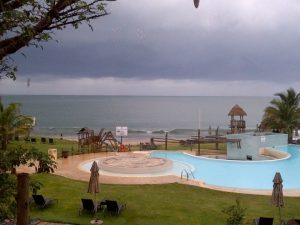
Ibeno Beach, Akwa Ibom state, Nigeria
There has to be deliberate planning and strategizing to get the economy going via tourism. The effective solution will be a robust and inclusive plan covering palliatives and incentives, policy, aggressive marketing, and collaborations. Forward thinking countries and regional authorities are already releasing their strategies to drive tourism going forward, we need to also be proactive. To give an example, Sicily, an island in Italy is contemplating giving visitors to the island 50percent of the cost of their airfare and a third of the cost of their hotel stay.
Of course, they understand the importance of tourists spend in the local economy and want to grab a good share of the numbers. Some governments are considering lowering their taxes to make it cheaper for visitors to visit. Any incentive to encourage visitors and make the destination more attractive is crucial at a time like this when confidence in travelling is still very low.
What lessons and opportunities are there for Nigeria to learn from Covid-19?
Covid-19 has taught us that we cannot continue relying only on revenue from crude oil. It has taught government to diversify the economy; to develop the non-oil sector like tourism to earn more revenue. We see the impact the drop in oil prices has had on our economy and the naira. Tourism is one of the lowest hanging fruits for us to tap alongside agriculture, technology and renewable energy.
The closure of international borders has raised an inevitable opportunity to harness domestic tourism. Nigeria has the potential to generate 10 times the current revenue from tourism given that we only currently do business with tourism. For the next few months, once our state borders are open, we need to encourage local travel, especially for leisure to revive the ailing economies of our states. Once we taste the sweet money from domestic tourism I am certain we will buckle up and do more.
How can African governments take advantage of the current Covid-19 to reset its economy both technologically and health wise?
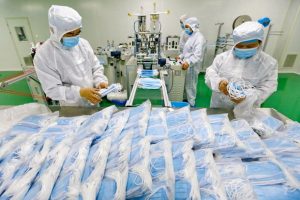
Personal Protective Equipments for coronavirus
We must commend the continent for the fight against the virus so far, especially given the backdrop of the fears expressed by western nations concerning the damage the pandemic could wreck in Africa. However, now is the time for African governments to increase drastically the investments in technology and health systems, the pandemic has shown that nations that are heavily dependent on others for the basics will suffer greatly in the event of unforeseen situations like Covid-19
What areas of technology should the government invest?
Government should take advantage of Virtual Reality and Artificial Intelligence (AI) to promote the image of the country and attract tourists. Huge investments have to be made in the internet infrastructure, and in reality, in most cases, this usually comes in the form of policies to allow private investments to flow. For example, Ekiti State recently reduced the Right of Way (RoW) for telecommunications infrastructure from N4, 500 to N145 per meter. Imagine how this will affect the access to internet businesses among others. Technology is very crucial for tourism development.
What is the short term plan for the sector to make money, especially in the hotels which occupancy rates will continue to be at the lowest for some time to come?

Home food delivery services in Lagos
It’s a strange time and there is a lot of uncertainty in the industry. Some operators have resorted to other ancillary services to keep going. For example, there is a hotel in Lagos that offers meals with delivery and laundry services. These services were hitherto offered to in-house guests but now they are offering the public looking to make some revenue for them to survive. The reality is that there is not much that can be done especially with the uncertainty in terms of timeliness. This is why we hope there is a solution soon to allow operators resume partially and then in time fully.

 Crime1 year ago
Crime1 year ago
 Business5 years ago
Business5 years ago
 News6 years ago
News6 years ago
 Crime2 years ago
Crime2 years ago
 News1 year ago
News1 year ago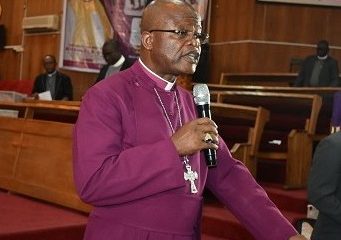
 News6 years ago
News6 years ago
